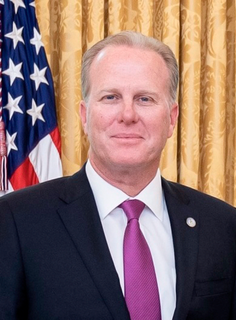A Quote by Kevin Faulconer
Historic inequality continues to cast a long shadow on more than just law enforcement. It affects everything from housing to employment to transportation.
Related Quotes
A ‘liberal paradise’ would be a place where everybody has guaranteed employment, free comprehensive health care, free education, free food, free housing, free clothing, free utilities and only law enforcement personnel have guns. And, believe it or not, such a liberal utopia does indeed exist. ... It’s called prison.
Long ago, during my apprenticeship in the wine trade, I learned that wine is more than the sum of its parts, and more than an expression of its physical origin. The real significance of wine as the nexus of just about everything became clearer to me when I started writing about it. The more I read, the more I traveled, and the more questions I asked, the further I was pulled into the realms of history and economics, politics, literature, food, community, and all else that affects the way we live. Wine, I found, draws on everything and leads everywhere.
Council housing works because it pays for itself relatively quickly: the rent paid by tenants covers the building costs in the long term, and eventually makes a profit for the local authority, which continues to invest in the local area. The money continues to circulate within the community rather than simply boosting the profits of landlords.
The importance of making sure that the sense of accountability when, in fact, law enforcement is involved in a deadly shooting is something that I think communities across the board are going to need to consider, we have a great opportunity, coming out of some great conflict and tragedy, to really transform how we think about community law enforcement relations so that everybody feels safer and our law enforcement officers feel, rather than being embattled, feel fully supported.
To argue that it is unconstitutional for local law enforcement to be a legitimate partner in immigration enforcement is shortsighted. It is evidence of a lack of commitment to securing our borders and a lack of appreciation for the proper role of the states in supporting federal law enforcement priorities.
It is a serious undertaking and yes, we do need more fencing and we do need to use technology, and we do need more border control. And we need to have better cooperation by the way with local law enforcement. There are 800,000 cops on the beat, they ought to be trained to be the eyes and ears for law enforcement for the threat against terror as well as for immigration.
According to the Tax Foundation, taxes now consume more than 38% of the average family's budget. That is more than is spent on food, clothing, housing, and transportation combined. Compare this to the plight of medieval serfs. They only had to give the lord of the manor one-third of their output - and they were considered slaves. So what does that make us?
Communities do need police, but law enforcement needs to be much more transparent and held accountable for their actions. We also need increased resources for mental health services, affordable housing, education, jobs training, and much more to truly address social and economic issues in our communities.

































